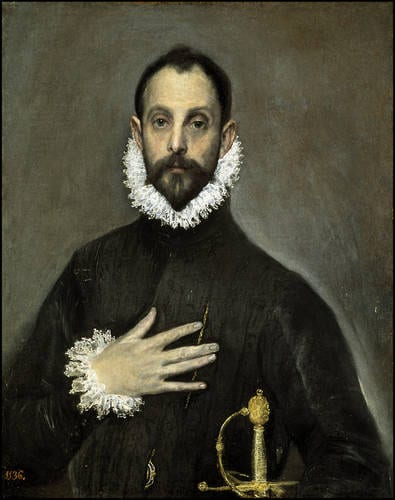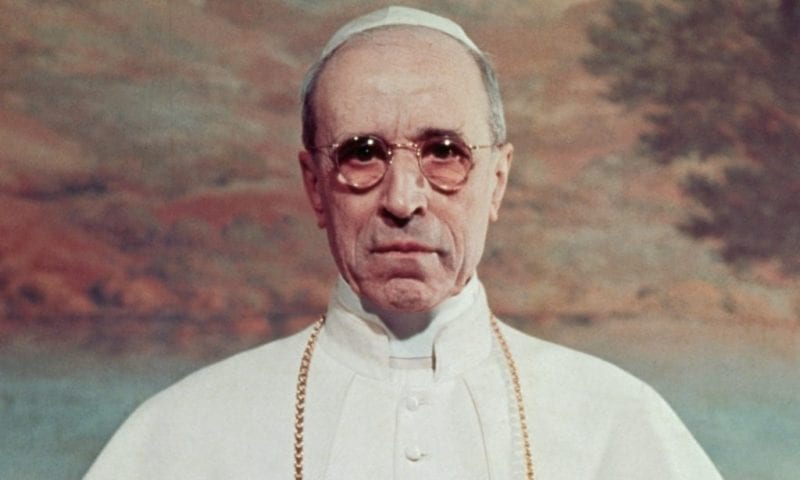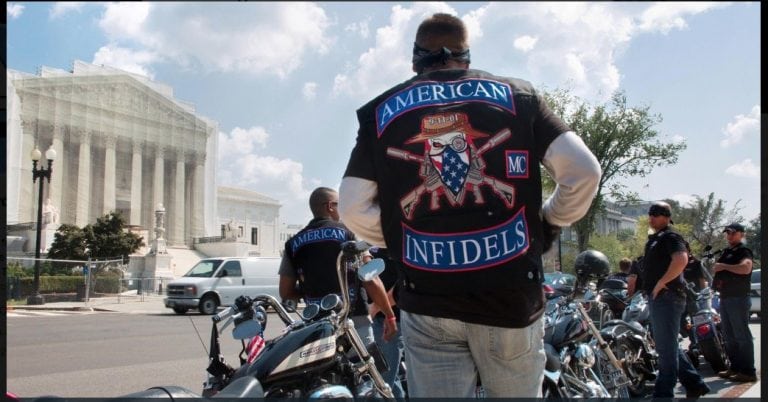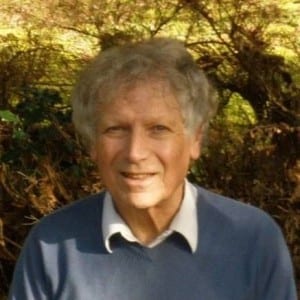On hearing the word ‘revisionism,’ suspicion lurks in the mind of some, and alarms sound in the mind of others. Suspicion is the elder sister of twins, credulity and incredulity. And of all kinds of credulity, the most obstinate and wonderful is that of zealots; of men who resign the use of their eyes and ears, and resolve to believe nothing that does not favor those whom they profess to follow.
Hence the law of truth, which most would accept in principle, is broken without penalty, without censure, and in compliance with inveterate prejudice and prevailing passions. Men are willing to credit what they wish, and encourage rather those who gratify them with pleasure, than those who provide them with fidelity, (or at least try to.)
Still, revisionism implies nothing else but an effort to seek historical truth and to discredit myths that are a barrier to peace and general goodwill among nations. There is nothing upon which more writers, in all ages, have laid out their abilities, than revisionism. And it affords no pleasing reflection to discover that a subject so controversial is anything but exhausted.
It may surprise some that the first undisputed revisionist was a relatively little known Renaissance scholar named Lorenzo Valla (1407-1457). He used his knowledge of classical Latin to prove that an important text written by Emperor Constantine, one thousand years before, was actually a forgery. To the skeptic who understandably asks, “So what?” the answer may surprise him. That discovery destroyed the historical justification for the Catholic Church to have a judicial right to the possession (essentially at will), of earthly lands and geographical domains.
The forged document titled “The Donation of Constantine,” stated, “I, Constantine, donated the whole of the Western Roman Empire to the Roman Catholic Church, as an act of gratitude for having been miraculously cured of leprosy by Pope Sylvester I.”
Lorenzo Valla proved that the vernacular Latin of the forged ‘donation’ was in use only in the 8th century AD, rather than the 4,th when the document had allegedly been written.
The incentive for Valla’s research was a land dispute between his patron Alfonso V of Aragon and the Pope of the time. Understandably the Church rejected the conclusion, but rather than been pilloried, insulted, derided, ostracized, banned or burned, Valla actually even enjoyed the patronage of Pope Callixtus III. Perhaps the spirit of the Renaissance inspired indulgence and forbearance, instead of hatred and revenge. Which is more than can be said about what happened to recent revisionists of more recent events.
To step back a little, let’s take the American Revolution for example. Patriotic historians have hailed the dumping of English-imported tea into Boston harbor as evidence of an unsullied love of freedom and of courageous revolting by idealistic patriots against a tyrannical enemy and extortionist import taxes.
But revisionists have shown that the first financier of the Revolution was John Hancock, a wealthy merchant from a family that made its fortune from smuggling. Tea happened to be a major item, generously drunk by colonists and locals.
It just so happened that England had a large overstock of stored and unsold tea from the East Indian Company. To dispose of it they sold it in America at a price that, even with the import tax, was less than the cost of the tea smuggled in America from Holland. This substantially cut into the profit of the Hancock business. Hancock but caught the stream in the torrent of occasion(1)
In 1812 America wanted to conquer Canada to bring freedom thither, as pompously declared by Gen. William Hull in his annexation proclamation, before being defeated at Detroit. Two years later, during the peace negotiations with the British, the Americans denied of ever having intended to annex Canada. “But how about Gen. Hull’s declaration in Detroit?” asked the British. “That was not really government-sanctioned policy,” was the reply, as documented in the records.
And when the British requested some territorial exchanges and concessions that would have preserved independence for some American Indians, the Americans flatly refused. In a report to his boss in London, Lord Bathurst, the British negotiator Henry Goulburn wrote “…till I came here I had no idea of the fixed determination which there is, in the heart of every American, to extirpate (sic) the Indians and appropriate their territory.”
Yet, in the non-revisionist annals of history, the war of 1812 was “The War That Forged A Nation.”
 To the Civil War (1861-1865), the term ‘revisionism’ has not generally been applied – though, to be pedantic about it, in the South the same war was called “War for Southern Independence.” Yet unofficial revisionists have focused on the causes of the Civil War far more than on the causes of either World War. Nevertheless, it is no longer impolitic to say that the war had little and only tangentially to do with slavery emancipation.
To the Civil War (1861-1865), the term ‘revisionism’ has not generally been applied – though, to be pedantic about it, in the South the same war was called “War for Southern Independence.” Yet unofficial revisionists have focused on the causes of the Civil War far more than on the causes of either World War. Nevertheless, it is no longer impolitic to say that the war had little and only tangentially to do with slavery emancipation.
Revisionists have equally shown that, at the time of the Spanish American war in 1898, President McKinley, with the full Spanish concessions to his demands in his pocket, concealed the Spanish capitulation from Congress and demanded war. Which in turn required an excuse (“casus belli” is the technical term). The sinking of the Maine did nicely, with 268 dead American sailors. Blowing up the Maine was the 9/11 of the Spanish-American War.
Today it is acceptable to tell the truth about the Maine, partly or mostly because 120 years have worn out the print of remembrance, and much greater horrors have shown the immense power of immense evil.
Besides, the relatively recently published “Operation Northwood” papers show a detailed plan for a false flag operation that included the killing of an unspecified number of Americans, to justify the invasion of Cuba during Kennedy’s time. And, as universally acknowledged, the false North Vietnamese attack on an American frigate in the Gulf of Tonkin was the notorious excuse for the Vietnam War.
It is somewhat disheartening to agree with Oscar Wilde that “truth is a matter of style.” And if use almost can change the stamp of nature (2) , habituation to mass media bombardment using the same story can make the story appear true and quell the power of independent thought – or throw it out with wondrous potency(3)
Furthermore, insensibly and by degrees, the popular media, controlled by a state-within-the state, has cleverly assuaged the mesmerized audience to believe and accept that astuteness redeems any evil. Actual cases have literally shown that with lots of money even a moderately unintelligent criminal can get away with murder.
As for 9/11, I will not repeat what has been said, written, debated or demonstrated by thousands of others. In my mind there remains printed the expression of Larry Silverstein, either owner, or renter, or lessee of the towers, depending on intricate legal arguments and definitions. When he claimed on television that he did not go to his office on 9/11, because he had an appointment with a dermatologist, and his wife insisted that he keep it. Physiognomy, however, is a justly debatable science, immune to revisionism.
It was WW1 that actually brought the term “revisionism” into general use, and for good reasons. For the revisionists counted on an accurate assessment of the causes of the War for a review and re-write of the Treaty of Versailles. The treaty assigned to Germany and Austria the sole responsibility for the conflict.
The Germans were ‘Huns’ (sic), suggesting wild hordes of horse-mounted barbarians who brought havoc to the Roman Empire. That the German ‘Huns,’ in 1914, had the most socially advanced measures and safety-net for workers in Europe, including the equivalent of social security, was deemed irrelevant.
But at the onset of the war new methods of communication, mass journalism and propaganda could whip up popular opinion and mass hatred as never before in the history of warfare. By then propaganda, especially of the Edward Bernay’s type, was the arbiter of good and evil, as discussed in the article “The Fraud of Freud.” Propaganda, then and now, is ever ready to surprise the unawareness of the thoughtless, prone to be misled by meteors mistaken for stars.
Media-whipped-up hysteria made Germany entirely responsible not only for the outbreak of war in 1914 but also for the American entry in April 1917.
President Wilson, who decided to join the war to make the world safe for democracy, even imprisoned union leader Eugene Debs for having said that profit, not democracy was the only motive for that decision.
Other revisionists connected the entry of America in WW1 to the quid-pro-quo worked-out in England by certain bankers, in exchange for the Balfour declaration and the consequent eventual ethnic cleansing of the Palestinians.
At Versailles, the victors alleged that, on July 5, 1914, the Kaiser had called a Crown Council of leading German government officials, ambassadors, and financiers. Where he told them to ready themselves for the war he would shortly declare. Whereupon the financiers asked for a two weeks delay, to sort out loans and securities. The Kaiser agreed and then left for his habitual summer North Sea vacation on his yacht. All this was, allegedly, concocted to give the enemy a false sense of security.
An American revisionist proved from available documents that the Crown Council legend was a complete myth. Some of the alleged participants were not in Berlin at the time. And the Kaiser’s actual attitude, on that 5th of July, was 180 degrees opposite to the official narrative, while the two-week time requested by the bankers was imaginative fabrication.
What actually happened has a tinge of the Bacchic and the Boccaccesque. The secretary to the German Ambassador in Constantinople, Baron Hans von Wangenheim, revealed the facts.
Von Wangenheim had a mistress in Berlin and, in the early days of the crisis of 1914, she demanded that he return at once to Berlin to settle some critical matters with her. He complied and, to conceal from his wife the real reason for the trip, he told her that the Kaiser had suddenly summoned him to Berlin.
On his return, he told his wife about the fanciful Crown Council he had dreamed up. Shortly later, with his wife by his side, von Wangenheim met Morgenthau, then the American Ambassador at Constantinople, at a diplomatic reception.
Morgenthau had heard about von Wangenheim’s trip to Berlin and pressed him to say something about it. Under the circumstances, von Wangenheim could only repeat the myth he had told his wife. To what extent liquor may have lessened his restraint, and how much Morgenthau elaborated on what von Wangenheim actually said will be forever buried several fathoms in the earth, or sunk into the bottomless sea of things unknown.
Still, that preposterous tale demonstrates the value of revisionism and how momentous and tragic events hang on the most palpable fabrications. For on its basis, the then British Prime Minister Lloyd George advocated the hanging of the German Kaiser (which the Dutch refused to do, for the Kaiser was in exile in Holland).
More recently, Colin Powell’s vial full of milk, paraded as antrax at the United Nations, was the excuse to wage a war on behalf of Israel that netted the destruction of a country, the death of over thousands of American soldiers and a million plus Iraqis.
What caused WW2 would demand an equal or greater volume of revisionism, if free speech were not equated to heresy. To name just one, mostly-buried and poorly-answered question – England declared war on Poland because Germany had invaded part of it, to recover lands lost in WW1. Why did not England declare war on the USSR, who invaded Poland from the East to recover land lost under the terms of the Brest-Litovsk peace treaty in WW1? Here the revisionists hit a lexical wall. England and France did not declare war on the USSR because the USSR was “in a state of neutrality.”
One current hot topic for revisionism is the so-called “Russia-gate.” In the US – according to statistics – less than 10% can even locate Ukraine on a map, as fascination for sports alone dramatically outweighs any potential interest in foreign things, let alone foreign history or the policies of foreign governments.
But even for millions in business or business related occupations, concern in foreign matters yields no physical, tangible residue, in the way of durable goods or profit. Consequently, such interests are prima facie imbecile and correspondingly distasteful to men whose habitual occupation is with the acquisition of wealth or the thought of it.
Therefore to suggest that Russia influenced the American electorate to vote for Trump, brings sublimity to the ridiculous. Yet even the “The New York Times,” which usually exhibits a shrewd eye to the limits within which dishonesty is the best policy, has succumbed to the temptation of promoting a legless fabrication. While the insupportably disagreeable lackeys of the information industry continue to lie without being belied, deceive without being unmasked, and wear the medals of their own crimes.
I will conclude this scant and thoroughly incomplete anthology of revisionism by referring to the Spanish Inquisition, which, more than from history books, is remembered thanks to the related satirical sketches of Monty Python.
Telegraphically compressed, the history goes as follows. In 1391 various rulers of Spain banned the Jews from their respective kingdoms. Or rather, the Jews were told to convert (to Christianity), or leave. Those who could leave left, those who didn’t and did not convert suffered persecution. Of those who converted, henceforth called “conversos”, many maintained their important and lucrative positions inside what today we call the establishment.
As an instance – and the related documentation is ample – take the case of Alonso de Cartagena. When 4 or 5-year old, he was baptized by his father Shlomo ha-Levi. Ha-Levi, in turn, had converted to Christianity just before the anti-Jewish pogroms of 1391, and later was elected bishop of Cartagena and Burgos, while his wife remained faithful to her original faith.

Before the expulsion, Conversos found loopholes to escape prejudice, particularly through a marriage with a Christian. Conversos sought out marriages with Spanish nobility and aristorcracy. These marriages were of great convenience to both spouses. In intermarriages, Converso families gained respect in society and the Old Christian families gained more wealth and status. El Caballero de la mano al pecho by El Greco is a painting of a crypto-Jew who continued to live a life of secrecy and shame in Spain after the expulsion.
Anyway, the perception at large that the conversion to Christianity was just a front, led to two important developments. In 1492 King Ferdinand, who now ruled Castile and Aragon, banned from Spain the unconverted Jews with no exception, while the Inquisition (a kind of National Security Agency), set itself to determine if the conversion was real or not.
This decision to expel had been brewing for some time. In the meantime Pope Eugenius IV had nominated Cartagena Junior as Bishop of Burgos. Cartagena was a very learned man who translated Cicero and the books of Seneca in Castilian. And he also set himself to combat the view that Jews could not really be Christian, in his treatise titled “Defensorium.”
According to his (we can call it revisionist) view, the idea of the Jews being the “chosen people” was a misinterpretation. Abram’s circumcision – he wrote – was just a mark of an alliance, not a result of his merits. This is why “(God) generously decided to give his people the law, so that the distinction among peoples be perceived not only in the flesh by cutting off the foreskin, but also in the customs by cutting off vices.” [Dios] se dignó darle generosamente la ley para que la diferencia no fuese percibida sólo en la carne, por el corte del prepucio, sino en las costumbres, por el corte de los vicios” (Cartagena, Defensorium).
But this was not enough. Unsubstantiated historical rumor says that Ferdinand was reluctant to pass the expulsion measure, considering that he had received a very generous offer from prosperous members of the Spanish AIPAC of the time. At which Torquemada allegedly threw a cross at the feet of Ferdinand and said, “Christ was betrayed for 30 pieces of silver. Would you betray him, just because the reward is higher?”
Even so, the debate did not end, after the Jews’ expulsion of 1482. For in 1539 Ignatius of Loyola along with four other conversos and one established Christian, founded the Jesuit order. Bitter fights between the parties of “Jesuits-conversos-in” and “Jesuits-conversos-out,” lasted well into the 17th century.
In the overall context, it is interesting to consider the views of Benzion Netaniahou, father of Benjamin Netayou-know-who.
Benzion died in 2012 aged 102, and in 1995 published his book titled, “The Origins of the Inquisition.”
According to a commentary by a critic, B. Netaniahou’s intent was ,
“to dissect the consequences of Jewish naiveté. His fascination with medieval Spain wasn’t based only on the behavior of the victimizers but of the victims. He not only drew a line connecting what he defined as the racial anti-Semitism of the Inquisition with Nazism, but implicitly drew a line between the Jews who saw medieval Spain as their golden land and the Jews who saw modern Germany as their new Zion. It is precisely that dread of Jewish self-deception that has defined the politics of Benzion’s son.”
Other revisionist critics have disputed that B. Netaniahou wished to portrays Jews as naive, by quoting the following passage from his book,
“It was primarily because of the functions of the Jews as the king’s revenue gatherers in the urban areas that the cities saw the Jews as the monarch’s agents, who treated them as objects of massive exploitation. By serving as they did the interests of the kings, the Jews seemed to be working against the interests of the cities; and thus we touch again on the phenomenon we have referred to: the fundamental conflict between the kings and their people—a conflict not limited to financial matters, but one that embraced all spheres of government that had a bearing on the people’s life. It was in part thanks to this conflict of interests that the Jews could survive the harsh climate of the Middle Ages, and it is hard to believe that they did not discern it when they came to resettle in Christian Europe. Indeed, their requests, since the days of the Carolingians, for assurances of protection before they settled in a place show (a) that they realized that the kings’ positions on many issues differed from those of the common people and (b) that the kings were prepared, for the sake of their interests, to make common cause with the “alien” Jews against the clear wishes of their Christian subjects. In a sense, therefore, the Jews’ agreements with the kings in the Middle Ages resembled the understandings they had reached with foreign conquerors in the ancient world.”
Conclusion? The resentment against the Jews was the fault of the kings. Or rather, Jews were not naive, as one of the book reviewers suggested. Instead they realized that in allying themselves with exploiting ruling elites, they would incur the wrath of the people and thus require princely assurances of protection.
The Jewish alliance with local exploitative elites is a constant among alleged causes of anti-Jewish resentment, in Europe and elsewhere. Whether this set of affairs can be observed in the current Zeitgeist of American history, I do not feel qualified to determine. Considering that the purpose here is/was to review revisionism, not to draw, declare or dismiss sundry articles of truth.
Furthermore, of things that revolve around human life, the world is the proper judge. To despise its sentence, if it were possible, is not just; and if it were just, is not possible. For in the end, as it was said, and not by me, “Nothing is good or bad, but thinking makes it so.(4)”
Reference:
** (1) King Henry IV, part 2
** (2), (3), (4) Hamlet
Image Location: https://codoh.com/media/files/cartoon25s.png
SOURCE http://yourdailyshakespeare.com/brief-history-of-revisionism/equalities#more-8370



 Born in Minneapolis, Minnesota, United States, Engdahl is the son of F. William Engdahl, Sr., and Ruth Aalund (b. Rishoff). Engdahl grew up in Texas and after earning a degree in engineering and jurisprudence from Princeton University in 1966 (BA) and graduate study in comparative economics at the University of Stockholm from 1969 to 1970, he worked as an economist and freelance journalist in New York and in Europe. Engdahl began writing about oil politics with the first oil shock in the early 1970s. His first book was called A Century of War: Anglo-American Oil Politics and the New World Order and discusses the alleged roles of Zbigniew Brzezinski and George Ball and of the USA in the 1979 overthrow of the Shah of Iran, which was meant to manipulate oil prices and to stop Soviet expansion. Engdahl claims that Brzezinski and Ball used the Islamic Balkanization model proposed by Bernard Lewis. In 2007, he completed Seeds of Destruction: The Hidden Agenda of Genetic Manipulation. Engdahl is also a contributor to the website of the anti-globalization Centre for Research on Globalization, the Russian website New Eastern Outlook,[2] and the Voltaire Network,[3] and a freelancer for varied newsmagazines such as the Asia Times. William Engdahl has been married since 1987 and has been living for more than two decades near Frankfurt am Main, Germany.
Born in Minneapolis, Minnesota, United States, Engdahl is the son of F. William Engdahl, Sr., and Ruth Aalund (b. Rishoff). Engdahl grew up in Texas and after earning a degree in engineering and jurisprudence from Princeton University in 1966 (BA) and graduate study in comparative economics at the University of Stockholm from 1969 to 1970, he worked as an economist and freelance journalist in New York and in Europe. Engdahl began writing about oil politics with the first oil shock in the early 1970s. His first book was called A Century of War: Anglo-American Oil Politics and the New World Order and discusses the alleged roles of Zbigniew Brzezinski and George Ball and of the USA in the 1979 overthrow of the Shah of Iran, which was meant to manipulate oil prices and to stop Soviet expansion. Engdahl claims that Brzezinski and Ball used the Islamic Balkanization model proposed by Bernard Lewis. In 2007, he completed Seeds of Destruction: The Hidden Agenda of Genetic Manipulation. Engdahl is also a contributor to the website of the anti-globalization Centre for Research on Globalization, the Russian website New Eastern Outlook,[2] and the Voltaire Network,[3] and a freelancer for varied newsmagazines such as the Asia Times. William Engdahl has been married since 1987 and has been living for more than two decades near Frankfurt am Main, Germany. 



















